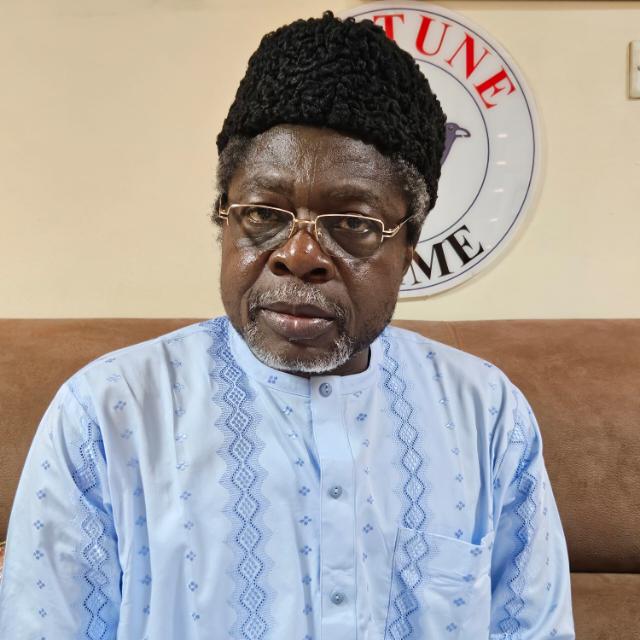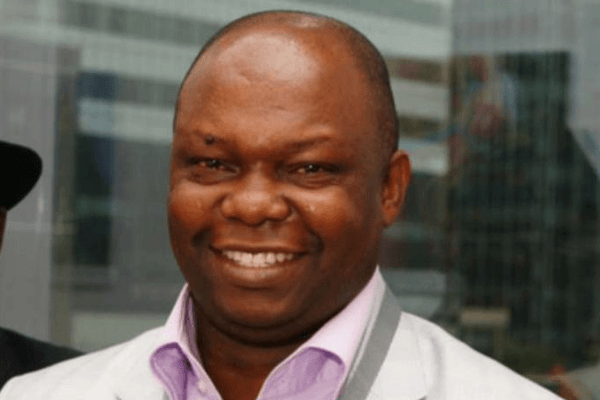Greek mythology, in the Aeschylus tragedy called Agamemnon, told the story of Cassandra. She was a pretty damsel highly sought after by the god, Apollo. The god promised that if Cassandra gave in to his advances, he would give her the power of prophecy. Though the damsel accepted the proposal and was immediately proclaimed blessed with the gift by Apollo, Cassandra refused to return the affection. Enraged by this insolence, since the god Apollo lacked the power to revoke a divine pronouncement, he placed a curse on Cassandra, to wit that her prophecies would never be believed. The effect of the curse was so sweeping that even when Cassandra accurately predicted the fall of Troy and the death of Agamemnon, her warnings went unbelieved and unheeded.
So, when people like Nigerians are torn between believing a government that specializes in offering condolences when they are killed by terrorists, and a government known for proactively guiding its nationals from obsequies, such people can be said to have been struck by the Cassandra complex.
Last Thursday, the Cassandra complex befell the United States. It had ordered its non-emergency diplomatic staff and members of their families to leave Abuja, maintaining that a “heightened risk of terrorist attacks” was afoot. In a country summary for Nigeria, America warned that “terrorists may attack with little or no warning,” and their soft targets would be malls, markets, hotels, restaurants, bars, or schools. Britain, Canada, and Australia have since followed suit. In its own warning, the UK government warned that terrorists were likely to carry out attacks in the country that could be indiscriminate. They said the terrorists could target western governments’ interests and places usually visited by tourists.
The warnings claimed that the nation’s capital, Abuja, was potentially imperiled. Intelligence it received, said the UK was to the effect that Islamic State of West Africa Province (ISWAP) and Boko Haram terror group were on the verge of launching coordinated attacks on the country. Already, the travel advisory has led to the closure of schools, and shops, and British Airways was said to have re-routed its flights from Abuja to Lagos.
As usual, Nigeria’s inchoate response followed. Minister of information and culture, Lai Mohammed, hit the airwaves with his air of rabble-rousing and scant content. The government would not be stampeded by whatever advisory any foreign government gave its citizens, Mohammed waffled embarrassingly. More was to come from the unguarded closet; any attempt by terrorists to embarrass the government would be thwarted as security agencies were up to the task. Nigeria is safe, he said with an imperious gesture. Mohammed even took the situation to an absurd level by comparing similar travel advisories and warnings the Nigerian mission in the US sends to its nationals in Houston.
“But we, as a country, have a responsibility to keep our country safe, and we’re not going to be stampeded, at all, by whatever any government decides to tell its people,” said Mohammed. Comparing the Nigerian situation to what he called “senseless killings” that happen in the US, he warned that no country had the right to de-market Nigeria.
Warning philosophy has a long history. Socrates can be said to own its patent. After his sentence to death, Socrates warned Athenians that their sins and lies would ruin this city known as the cradle of democracy. Hannah Arendt, political philosopher, author, and Holocaust survivor, who is widely held as one of the most influential political theorists of the 20th century, also warned that totalitarianism would reemerge after the Second World War and that it would pull the brake on the train of progress, stacking disaster upon disaster on the world. They were both right in their warnings.
Perhaps out of rabid nationalism, defiance to realism, or simply indifference to prevailing reality, the current warnings by the American and British governments to their nationals in Nigeria have become comparable to circulating mugs of beer at drinking joints. Uncritically, most of the commentators suddenly found their long-lost national pride. While doing this, they fail to critically examine the unflattering situation that Nigeria finds itself in the context of global terrorism.
On the nature of warnings, a research professor of Philosophy at the Pompeu Fabra University in Barcelona, Santiago Zabala, warned that amid a flurry of crises and existential threats that we find ourselves as citizens of the world, our ability to interpret the world around us and heed warnings from those who know has never been more vital than now.
As I said earlier, negative reactions to these advisories by foreign governments must have resulted from either ignorance or share blind patriotism that has no basis in reality. Or the inability or incapability of both the Nigerian government and Nigerians who denounce the advisories to think through the mess we found ourselves in. First is that the warnings were made by those governments to their citizens who they have the fiduciary responsibility of protecting wherever they are, anywhere in the world. Second, we fail to realise that warnings, by their make-ups, have a philosophical underpinning. It is that, in the words of Zabala, rather than being a nuisance from an adversary, warnings point toward what is to come. They are meant to involve us in a radical break, a discontinuity with the present, and they are signaled by alarming signs that we are asked to confront.
So why are Nigeria, Nigerians, and our government not confronting the reality of our precarious situation, but rather find comfort in scapegoating? In my only point of agreement with Lai Mohammed, terrorism and its attacks are not native to Nigeria. Every country has its, in different forms and content. The painful truth is that we live in a world of terrorism. Brussels, Paris, Beirut, San Bernardino, America, and several other countries are not immune from the men of terror who have chosen to define the world with blood and paint the global canvas in crimson. They pop champagne when blood is shed and their criminal activity makes international headlines. The number of groups using terrorism to achieve political goals has increased phenomenally in the world. In its raw definition, terrorism is violence packaged and designed to deliver a message of blood to the world. Terrorists have a similar modus operandi. They all shuttle towards a brutal mass casualty in their attacks. In the past, terrorist attacks were aimed at political or military leaders and buildings, as well as softer targets with civilians as casualties.
From the March 1, 1881, assassination of Tsar Alexander II of Russia in Saint Petersburg by members of the Russian Revolutionary organisation called The People’s Will, to other assassinations like the July 22, 1946, Zionist terrorist organisation, Irgun’s detonation of a bomb in the basement of the King David Hotel in Jerusalem, or the horrendous abduction and murder of eleven Israeli athletes at the 1972 Summer Olympics in Munich, Germany and many more, the September 11 attack on the American Twin Towers became a U-turn on this personalised killings from terrorist attacks.
Nigeria has also had a sizeable share of these terrorist attacks. Starting with the well-organised terrorist attacks by Boko Haram and recently, the Ansaru terrorist organisation, the innocence of Nigeria was wrenched off at gunpoint. These terrorists target humanitarian staff and assets in Nigeria’s northeast. This includes the Nigerian Army garrison, towns, and roads with most of the actual casualty shielded by the mendacity of officialism.
The truth is that abetted by officialdom, Nigeria is still in self-denial of the fact that the country is today under the firm grips of terrorists. Continued threats by extremist groups like Al Qaeda-linked terrorist group, Jamaat al Ansar al Muslimeen fi Bilad al Sudan, popularly known as Ansaru, have been rife. Off-the-cuff kidnappings of citizens and foreigners are ten-a-dime in Nigeria’s northern states and some other states in the south. A few days ago, the amiable ex-secretary to the Enugu state government, Dan Shere, was kidnapped, ostensibly by herders. My teacher and doctoral thesis supervisor, former deputy vice-chancellor of the University of Ibadan, Professor Adigun Agbaje, is also in the dungeon of kidnappers who abducted him and others on the Lagos-Ibadan expressway on Friday. In mid-January 2020, Ansaru claimed to have murdered at least six people and kidnapped dozens, destroying many vehicles in an ambush along the Kaduna-Zaira highway in Kaduna state.
On July 5, 2022, the Kuje Prison in Abuja was attacked with explosives by gunmen suspected to be members of the Islamic State of West Africa (ISWA) which immediately claimed responsibility. Reports had it that Nigerian security personnel guarding the facility were literally snoring while this attack took place, with an unknown number of prisoners escaping to freedom.
On May 12 and July 4, 2022, ISWA also claimed responsibility for the broad day killings of policemen in Suleja, Niger state. It should be noted that Suleja is just about 20 kilometres from the seat of power in Abuja. Similarly, ISWA also owned up to the IED attack carried out on a drinking joint in Kabba, Kogi state, which occurred on May 29, 2022. Same ISWA, in April 2022, confirmed that it was responsible for the twin improvised explosive device attacks that were launched on Iware and Jalingo, Taraba state, while a month after, after an attack on a military facility in Jalingo, the same ISWA said it bore its bloody imprimatur.
The list seems endless. In December 2021, long-range rockets were fired into Maiduguri city with a few of those nooks landing near the Maiduguri Airport. Reports of several civilian casualties followed. Same happened in Jere local government area of Borno state in November 2020 when insurgents killed a minimum of 70 civilians, with many wounded and others kidnapped. So also on June 13, 2020, when terrorists launched an attack on Monguno town and succeeded in killing about 38 civilians. Or should we talk about the June 9, 2020, fiasco when these terrorists reportedly killed about 81 civilians in Felo village, Gubio LGA?
So, to pretend to be fazed by any statement which claims that terrorism is here to stay, in the words of Zebrudaya of the New Masquerade fame, is compound foolish. In all these killings and attacks, Lai Mohammed has always stood like what the Yoruba will call Oba Idun – king of bedbugs – waxing lyrical and pontificating on national pride and patriotism from an abundance of vacuity. Thousands of Nigerians have lost their breadwinners, children, and husbands to the daredevilry of these cohorts of blood. There is scant evidence that the government has gone past theory and public adulations and sentiment-baiting. After Mohammed has buffeted Nigerians with his barren calls for patriotism, Muhammadu Buhari’s obsequy terror squad in the presidency will follow it up with its presidential condolences and waffling about how it would be the last strike. Most times, before the squad is done talking, the messengers of death would strike again.
What indeed did Mohammed mean by being embarrassed by terrorists? Like Irish poet and writer Oscar Wilde once said, Nigerians seem to be people who live in the Buhari prison “and in whose lives there is no event but sorrow, have no measured time by throbs of pain and record of bitter moments”. The greatest embarrassment Nigerians encounter is this government, which again, in the words of Wilde, has buffeted us with throbs of pain. It is a government where the falcon cannot hear the falconer and where everyone is for themselves and God for us all. Have you heard the exchange between the minister of finance and the governor of Nigeria’s central bank on the naira redesign? While the ministry said it was not aware of the exercise, the CBN said it didn’t need ministerial approval for it and yet, the proposal was supposed to have been accented to by the federal executive council. While one of the two must be lying, the back and forth speaks volumes of an administration where no one is in charge, and that is on autopilot.
The terror that this country has witnessed since 2015 from the hands of this government is of the same proportion as the terror of insurgents. The terror of cluelessness, aloofness, apathy, and visionlessness is worse than brick and mortar terrorism of Boko Haram, bandits, and ISWAP.
The people I pity most are Nigerians who, knowing the capacity for absence of the Nigerian government, keep pummeling the American government which sent its citizens – not your citizens – warnings about dangers ahead in Nigeria. While the fact of terrorism has been a global phenomenon and has been on the upswing since 9/11, America and most of the countries of the west have taken firm and proactive measures in protecting the lives of their citizens, especially by being a step ahead of the terrorists. They do this periodically through intelligence gathering and dissemination of warnings where necessary.
In Nigeria, it takes Lai Mohammed’s waffle, dressed to look like patriotic sermons, as well as presidential condolences released after terror attacks, for us to know that government exists somewhere in Aso Rock. Methinks in the order of believability, it is safer to believe American and British governments which have pedigrees of standing by their people, rather than this group of governmental jesters. God forbid that these warnings come to pass. If they do, the template of Lai Mohammed’s next defense of government is ready to be rolled out. The crew at the villa will also issue its usual condolences while victims and their families will carry the can of blood.





